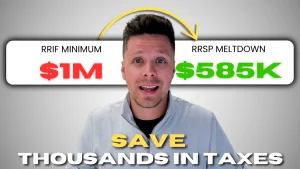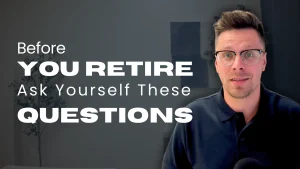[vc_row css=”.vc_custom_1612380408194{padding-top: 20px !important;padding-bottom: 20px !important;}”][vc_column][vc_video link=”https://youtu.be/XYdZYMit0o4″ css=”.vc_custom_1654110574687{padding-top: 20px !important;padding-bottom: 20px !important;}”][vc_column_text css=”.vc_custom_1654115009964{padding-top: 20px !important;padding-bottom: 20px !important;}”]
Video Transcript: 4 Conflicts Faced by Financial Advisors
If you are working with a financial advisor, you need to be aware of a few conflicts of interest that can affect your bottom line. Conflicts of interest will arise when your financial goals or interest are not in line with your advisors.
Most of these conflicts will arise due to your advisor’s compensation arrangement. In most cases, advisors are paid based on the value of the portfolio they manage on your behalf.
Don’t get me wrong; I’m not saying there is anything wrong with paying your advisor based on the value of your portfolio. In most cases, it’s quite beneficial as they have a vested interest in your portfolio performing well, but if you do, you need to be aware of these four conflicts.
-
Paying off Debt or Investing
Let’s say you come into $100k, and you ask your advisor whether you should invest the money or pay off debt. There isn’t a right or wrong answer here as in some cases, it may be more beneficial to invest, while in others, it may make sense to pay off debt.
However, if your advisor is recommending you invest the $100k, is it actually in your best interest, or is it in theirs as they would now be getting paid on that additional $100k in your investment portfolio?
So how can you protect yourself from this situation? In my opinion, this is where working with an advisor that has built you a financial plan can be beneficial. A financial plan can show you both options and the long-term effects. This is what it looks like if you decide to invest, and this is what it looks like if you decide to pay off debt. Armed with this additional info, you can decide what best suits your needs.
-
RRSP or RRIF Withdrawals
In many cases, it can make sense to make additional RRSP or RRIF withdrawals when you are retired, even if you don’t need the money to potentially avoid a 50% tax bomb at death. You can check out why this strategy may make sense for you through the link.
An advisor may not recommend this strategy, even if it’s in your best interest, as this would mean making a withdrawal from your retirement portfolio. If they are compensated based on the value of your portfolio, it’s not in their best interest to recommend you start making additional withdrawals.
Again, in my opinion, the best way to get around this conflict is by working with a financial advisor that can show you whether or not extra RRSP or RRIF withdrawals make sense for your long-term plans.
-
Trailing Commissions
If your advisor has incorporated mutual funds into your portfolio, they may be receiving a trailing commission directly from the fund company. For example, let’s say your advisor buys you XYZ Growth Mutual Fund, and the fund has a management fee of 2.5%. This essentially means that your return will be lowered each year by 2.5% as your cost to own the mutual fund. Of this 2.5%, a portion, let’s say 1%, will go directly to your advisor as a trailing commission.
The conflict that arises is that different funds will pay your advisor different amounts. More aggressive growth investments may pay your advisor 1%, whereas more conservative investments may only pay 0.5%.
This creates a conflict as the advisor gets compensated more for putting you in more aggressive funds, which may not align with your risk tolerance.
To avoid this conflict, it’s best to work with an advisor that gets paid the same regardless of the type of investments within your portfolio.
-
Monthly Pension or Lump Sum Payout
If you have a pension, you may have the option to choose between receiving a monthly amount for life or a lump sum payout once you retire.
If you ask your advisor which option to choose, you need to keep in mind that it’s in their best interest for you to take the lump sum as that would likely mean you would be adding to your investment portfolio.
Similar to the payoff off debt or investing conflict we have already covered, the best way to avoid this conflict is with a financial plan showing the long-term effects of both options.[/vc_column_text][/vc_column][/vc_row]






